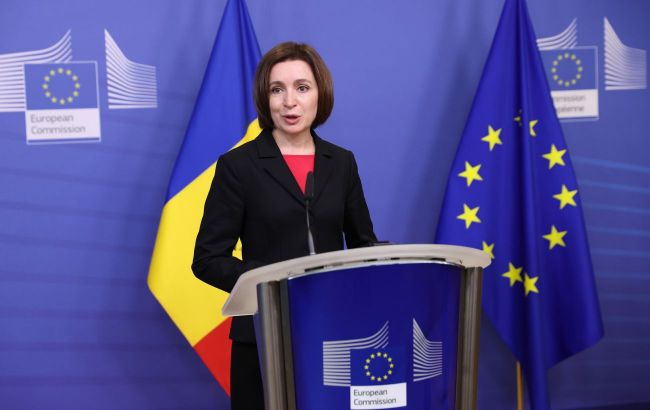Three Putinverstehers challenge Sandu in Moldova's elections
 Photo: Maia Sandu (Getty Images)
Photo: Maia Sandu (Getty Images)
Incumbent pro-European president of Moldova, Maia Sandu, is the leading candidate in the upcoming October 20 elections. Her main opponents are three so-called Putinverstehers, a term used to describe those sympathetic to Russian President Vladimir Putin, according to the RBC-Ukraine article "Everyone against Sandu: Will Moldovan elections lead to Russian comeback".
According to an Aspen Institute/Watchdog Moldova poll from October 7, Sandu holds a rating of 36.1%. In second place is the Socialist Party candidate, former prosecutor general Alexandr Stoianoglo, with 10.1%, followed by populist Renato Usatii with 7.5%. Independent candidate Irina Vlah, the former governor of Gagauzia (an autonomous region in southern Moldova), has 4.1%.
All three of Sandu’s rivals were previously linked to Russia, though they are not highlighting this connection now.
"There’s no overt pro-Kremlin narrative in this campaign, though judging by the candidates' comments, their promises, and their main slogans, you can tell what values they stand for. For example, none of the candidates, except Maia Sandu and Octavian Țîcu, mention their stance on what’s happening in Ukraine. This allows us to categorize them as Putinversteher," political analyst and former Moldovan representative to the Council of Europe and the UN, Alexei Tulbure, told RBC-Ukraine.
The term Putinversteher translates from German as “those who understand Putin” and is commonly used to refer to pro-Russian forces in Europe, from Germany’s Alternative for Germany (AfD) party to Marine Le Pen’s National Rally in France, and other far-right or far-left parties. Candidates from these political movements often advocate for unconditional peace and ceasefires, which effectively means capitulation to Russia and peace on Moscow’s terms.
Ahead of Moldova’s elections and a referendum on joining the European Union on October 20, Moldovan police uncovered a plot involving hundreds of citizens being sent to Russia for training to instigate public unrest.

